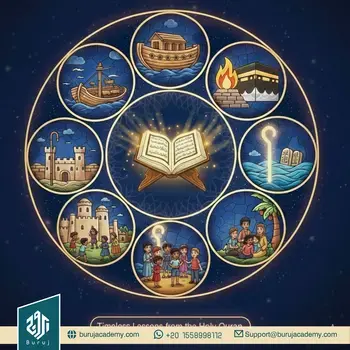I’m 45, a Father of 3, and I’m Memorizing the Quran. Here’s How.
For years, the dream of memorizing the Quran (Hifdh) felt like a beautiful, but unreachable, aspiration. It was something I saw young children achieve with remarkable ease, or dedicated students who had the luxury of ample free time. I, on the other hand, was 45, a father of three energetic children, with a demanding full-time job and a mountain of responsibilities. My internal monologue was a constant loop of excuses: “I’m too old,” “My brain is full,” “My memory isn’t what it used to be,” “I just don’t have the time.” These pervasive doubts effectively shut down any serious attempt at Hifdh For Adults, keeping me from even starting. The sheer weight of adult life seemed incompatible with such a monumental spiritual endeavor. But a deep yearning persisted, nudging me to challenge these self-imposed limitations. This is my story of how I, a busy father, finally began to memorize the Quran, proving that it’s never too late to connect with Allah’s words.
The Excuses Wall: Age, Time, and a ‘Full’ Brain
The idea of Hifdh For Adults seemed almost like a contradiction in terms. Most of the Huffaz (plural of Hafidh) I knew had completed their memorization in their youth. They possessed that incredible youthful plasticity of mind, an ability to absorb information rapidly without the accompanying baggage of work stress, mortgage payments, or school runs.
My own memory, I felt, had been steadily declining since my twenties. Trying to remember where I left my keys was a daily struggle, let alone committing pages of divine Arabic text to heart. The time constraint was equally formidable. My days were a blur of meetings, client calls, school pickups, homework help, dinner, and bedtime stories. Where would I even find an hour, let alone several, for dedicated Hifdh?
These perceived barriers were so strong that they formed an impenetrable wall, convincing me that Hifdh For Adults was simply not for me. I would sigh, contenting myself with the thought that perhaps I could just focus on reading the Quran with translation. But deep down, the yearning for that intimate connection, that spiritual elevation that comes from carrying Allah’s words in one’s heart, never truly subsided.
Free Trial Session Contact Us
The Spark: A Small Step, A Big Shift
The turning point wasn’t a sudden epiphany or a miraculous surge of free time. It was a subtle, persistent whisper in my heart and a chance conversation with an older brother at the Masjid. He was in his late 50s and had just completed his Hifdh of Juz’ Amma (the last section of the Quran).
“How?!” I exclaimed, genuinely surprised. “With your job and family, how did you do it?”
His answer was simple, yet profound: “Brother, the brain is like a muscle. You use it or lose it. And Allah blesses the sincere effort, no matter how small. A little bit consistently is better than a lot sporadically.”
Hifdh For Adults
His words shattered my “I’m too old” and “my brain is full” excuses. It wasn’t about being perfect; it was about being consistent and sincere. That conversation ignited a tiny spark, compelling me to explore practical strategies for Hifdh For Adults.
Check out Buruj Academy’s Quran courses today!
Hifdh For Adults: My Practical, Real-Life Strategy
I realized that my approach couldn’t mimic a full-time student. It had to be tailored to the realities of adult life. Here’s the practical strategy I developed, which has allowed me to steadily progress, one verse at a time:
1. Micro-Commitments: Small Bites, Consistent Progress
Instead of aiming for a page a day, I started with one to two verses daily, or even just half a verse if it was particularly challenging. The goal was to build momentum and consistency, not overwhelm myself. This meant:
- 15-20 minutes after Fajr: My most sacred time. Before the house woke up, I’d focus on new memorization.
- 5-10 minutes during lunch break: Reviewing old verses or tackling a new phrase.
- 10 minutes before bed: Quick revision of the day’s new verses.
These micro-commitments aggregated into significant progress over weeks and months, proving that Hifdh For Adults is achievable through small, consistent efforts.
2. The Power of a Dedicated Teacher: Accountability and Guidance
This was non-negotiable. I found an online Hifdh teacher who understood the challenges of adult students.
- Weekly Check-ins: I would recite my new portion and revision to him once a week. This provided crucial accountability. Knowing I had to present to someone kept me on track.
- Tailored Advice: He helped me identify my weaker areas, suggested specific revision techniques, and provided motivation during plateaus. His guidance was essential for navigating the complexities of Hifdh For Adults.
3. Strategic Review (Muraja’ah): The Backbone of Retention
Memorizing is one thing; retaining is another. I integrated a structured revision system:
- New Memorized Portion (3x/day): Any new verses memorized were reviewed multiple times throughout the day.
- Recent Memorized Portion (Daily): The last 5-7 pages (or Surahs) I memorized were reviewed daily.
- Older Memorized Portion (Weekly Cycle): I divided my older Hifdh into sections and ensured each section was reviewed at least once a week. This might mean dedicating one day a week to a specific Juz’ or a cluster of Surahs.
This systematic Muraja’ah prevented the panic of forgetting and reinforced my Hifdh, making Hifdh For Adults a sustainable reality.
4. Leverage Technology: Apps and Audio
My smartphone became a powerful Hifdh tool:
- Quran Apps: For clear text, translations, and jumping to specific verses.
- Recitation Apps: Listening to renowned Qaris helped me correct my Tajweed and internalize the rhythm of the verses. I’d listen during my commute or while doing chores.
- Recording Myself: I’d occasionally record my recitation and listen back to identify mistakes, just like my teacher would.
5. Integrate Hifdh into Daily Life: Salah and Reflection
- Recite in Salah: I consciously started reciting my newly memorized portions in my Nafl (supererogatory) prayers. This was a powerful way to solidify memorization and deepen my connection.
- Tafseer (Understanding): I made an effort to read the translation and a brief Tafseer of any Surah I was memorizing. Understanding the meaning greatly aids memorization and makes the Hifdh much more profound.
6. Mindset Shift: Patience and Du’a
I learned to be patient with myself. My progress might be slower than a child’s, but it was my progress. I accepted that forgetfulness is natural and that every attempt, every review, is an act of worship. Most importantly, I made constant Du’a (supplication) to Allah, asking Him to make it easy for me, to strengthen my memory, and to accept my efforts. This spiritual reliance was the ultimate fuel for my journey in Hifdh For Adults.
The Unexpected Blessings: Beyond Memorization
The journey has been challenging, but the blessings have been immeasurable. My brain isn’t “full”; it feels sharper, more disciplined. My memory has actually improved in other areas of my life. The fear of “I’m too old” has been replaced by a deep gratitude for Allah’s mercy and the realization that age is truly just a number when it comes to seeking knowledge.
Hifdh For Adults
Beyond the verses themselves, Hifdh For Adults has taught me immense patience, perseverance, and reliance on Allah. It has brought a profound sense of peace and purpose to my busy life, proving that no matter your age or circumstances, the door to memorizing Allah’s Book is always open for those with sincere intent.
If you’re an adult juggling responsibilities and telling yourself, “I’m too old,” or “My brain is full,” let my story be a testament: it is absolutely possible. Start small, be consistent, find a good teacher, and trust in Allah’s help. Your heart is never too old to hold His words.
Connect with Our Community
High-value education extends beyond the classroom. We provide free resources and a supportive community to help you on your journey. For free tips, student stories, and academy updates, follow us on Facebook, watch our educational lessons on YouTube, and join the conversation on Instagram.



